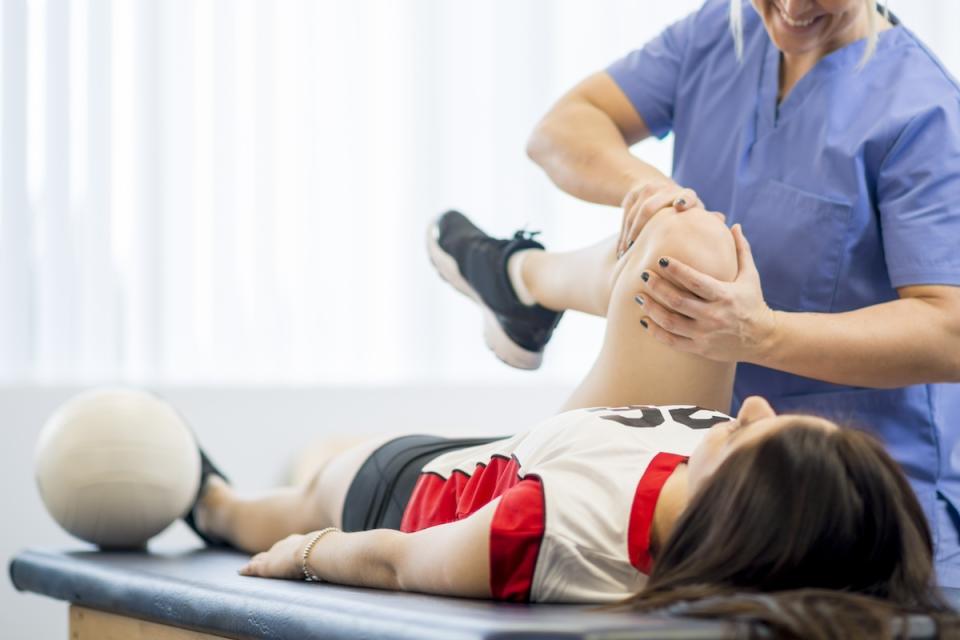With a new sports season approaching, you’re probably making sure your children have everything they need from equipment to activewear. If you have a student athlete, it’s important to add scheduling a sports physical to your to-do list.
Justin Stevenson, MD, aboard-certified sports medicine and non-operative orthopedics physician, offers a glimpse into what to expect from the exam and other important resources available during the season.
What happens after the exam?
If everything looks good, your child will be cleared for participation. Depending on the school district, a baseline concussion test and/or an EKG may be required.
If the doctor sees any potential risks or issues, additional testing may be needed. For example, if an athlete has a family history of heart-related issues or if the doctor hears a murmur while listening to their heart, they may be sent for an EKG and an echocardiogram. Governing bodies, like the Arizona Interscholastic Association (AIA), have specific testing and treatment guidelines in place, which will always be followed by the doctor. Other concerns may include untreated or undertreated asthma or high blood pressure. If these conditions are found on the preparticipation physical, they would be treated and monitored.
“It’s important for both the athlete and the parent to be as open and honest as possible when filling out the form and during the exam itself,” shares Dr. Stevenson. “If a follow-up is needed after the physical, it’s nothing to be scared of, and it doesn’t mean that the student athlete can’t participate. We want to make sure we’re capturing everything that we can to create the safest environment for all athletes.”
Resources during the season
What happens if your child has any changes in their health or an injury occurs during the season?
“The first thing the athlete should do is talk to their athletic trainer,” says Dr. Stevenson. “If the student athlete’s concerns do not get better with conservative care with the athletic trainer, it’s important to visit a primary care sports medicine doctor who will work with the athletic trainer as part of the healthcare team.”
A primary care sports medicine specialist can help address and manage non-operative musculoskeletal-related injuries. They can also coordinate care if the athlete needs to see a physical therapist or other specialists.
If your child experiences a concussion, the HonorHealth Concussion Program can help ensure they make a full recovery. A concussion specialist sees their patients regularly to guide their recovery and ensure they are getting the resources they need.
HonorHealth Sports Medicine
The team at HonorHealth Sports Medicine is a dedicated group of board-certified experts who understand the unique causes of sports injuries.
Beat heat-related illnesses
Living in the Valley of the Sun, we’re fortunate to have year-round sunshine that allows for more outdoor activities. However, heat-related illnesses can become a challenge.
HonorHealth Concussion Program
If you’ve been diagnosed with a concussion or are experiencing symptoms after a blow to the head, our program can help make sure you make a full recovery.

